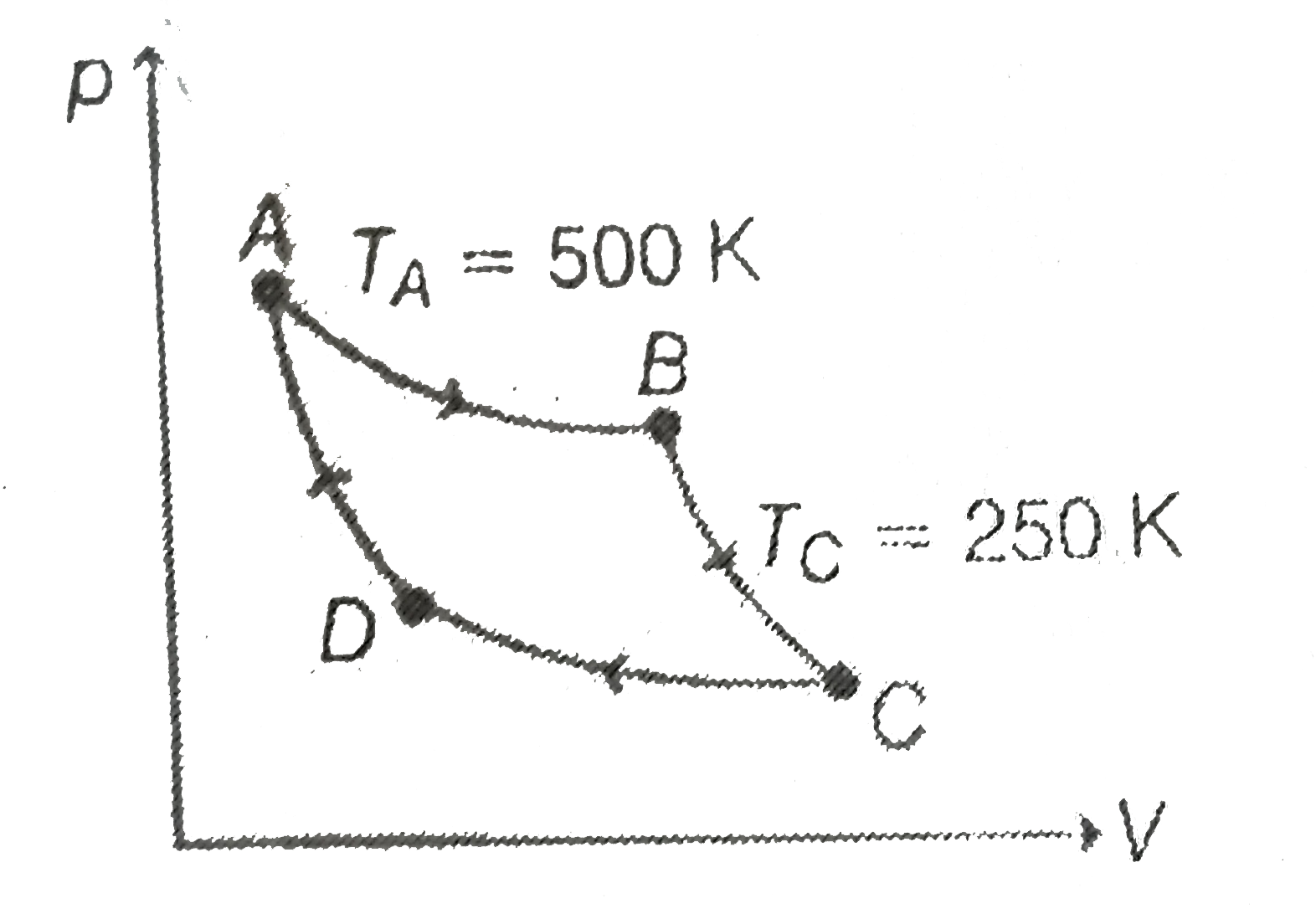200J of work is done to compress an ideal gas isothermally. How much heat flows from the gas during the compression process?
To solve the problem of how much heat flows from an ideal gas during isothermal compression, we can follow these steps:
Step 1: Understand the Process
In an isothermal process, the temperature of the gas remains constant. For an ideal gas, this means that any work done on the gas will result in an equivalent amount of heat being released or absorbed.
Step 2: Apply the First Law of Thermodynamics
The first law of thermodynamics states that:
ΔU=Q−W
Where:
- ΔU is the change in internal energy,
- Q is the heat added to the system,
- W is the work done by the system.
Step 3: Analyze the Isothermal Condition
For an isothermal process involving an ideal gas, the change in internal energy (ΔU) is zero because the temperature is constant. Therefore, we can simplify the equation:
0=Q−W
This leads to:
Q=W
Step 4: Work Done on the Gas
In this case, the work done on the gas is given as 200J. Since work is done on the gas, it is considered negative in the context of the first law:
W=−200J
Step 5: Calculate Heat Flow
Substituting W into the equation for Q:
Q=−W
Q=−(−200J)=200J
Step 6: Determine the Direction of Heat Flow
Since the work is done on the gas, heat must flow out of the gas to maintain the isothermal condition. Therefore, the heat flow from the gas is:
Q=−200J
Step 7: Convert to Calories
To convert joules to calories, we use the conversion factor 1cal=4.2J:
Q=−200J4.2J/cal≈−47.62cal
Final Answer
The heat that flows from the gas during the compression process is approximately:
Q≈−47.62cal
In an isothermal process, the temperature of the gas remains constant. For an ideal gas, this means that any work done on the gas will result in an equivalent amount of heat being released or absorbed.
The first law of thermodynamics states that:
ΔU=Q−W
Where:
- ΔU is the change in internal energy,
- Q is the heat added to the system,
- W is the work done by the system.
For an isothermal process involving an ideal gas, the change in internal energy (ΔU) is zero because the temperature is constant. Therefore, we can simplify the equation:
0=Q−W
This leads to:
Q=W
In this case, the work done on the gas is given as 200J. Since work is done on the gas, it is considered negative in the context of the first law:
W=−200J
Substituting W into the equation for Q:
Q=−W
Q=−(−200J)=200J
Since the work is done on the gas, heat must flow out of the gas to maintain the isothermal condition. Therefore, the heat flow from the gas is:
Q=−200J
To convert joules to calories, we use the conversion factor 1cal=4.2J:
Q=−200J4.2J/cal≈−47.62cal
The heat that flows from the gas during the compression process is approximately:
Q≈−47.62cal
Topper's Solved these Questions
- BOOK - PRADEEPCHAPTER - THERMODYNAMICSEXERCISE - Curiosity Question2videos
THERMODYNAMICS
- BOOK - PRADEEPCHAPTER - THERMODYNAMICSEXERCISE - Solved examples34videos
THERMODYNAMICS
- BOOK - PRADEEPCHAPTER - SYSTEMS OF PARTICLES AND ROTATIONAL MOTIONEXERCISE - Assertion- Reason Type questions20videos
SYSTEMS OF PARTICLES AND ROTATIONAL MOTION
- BOOK - PRADEEPCHAPTER - WORK, ENERGY AND POWEREXERCISE - Assertion-Reason Type Questions24videos
WORK, ENERGY AND POWER
Similar Questions
A diatomic gas done 80J work when expanded isobarically. Find the heat given to the gas during this process?
View SolutionA monoatomic ideal is used as the working substance for the carnot cycle shown in the figure. Processes AB and CD are isothermal, while processes BC and DA are adiabatic. During process AB, 400 J of work is done by the gasd on the surroundings. How much heat is expelled by the gas during process CD?
 View Solution
View Solution
Knowledge Check
- Question 1 - Select One
A gas is being compressed adiabatically. The specific heat of the gas during compression is
AzeroBinfiniteCfinite but non zeroDundefined - Question 2 - Select One
If an ideal gas is compressed isothermally then
ANo work is done against gasBHeat is relased by the gasCThe internal energy of gas will increaseDPressure does not change - Question 3 - Select One
The compressibility factor for an ideal gas is
A1.5B1.0C2.0D∞
If heat is supplied to an ideal gas in an isothermal process.
View SolutionWhen heat is supplied to an ideal gas in isothermal process, the
View SolutionIf heat is supplied to an ideal gas in an isothermal process.
View SolutionAn ideal gas system undergoes an isothermal process, then the work done during the process is
View SolutionAn ideal gas system undergoes an isothermal process, then the work done during the process is
View Solution

